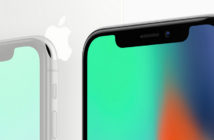By James Gray, director of Graystone Strategy Consulting.
Anyone who works in telecoms circles knows that 5G is on the horizon, with a promise to transform data speeds once again. And it is fast, no doubt about that. The University of Surrey, which is at the forefront of developing and understanding this technology, has achieved data speeds of one terabyte per second. Although that is in somewhat theoretical lab conditions it doesn’t take much imagination to see the potential.
In fact, you don’t even need to use your imagination. Look to Japan and NTT DoCoMo and you’ll find 3.6Gbps in field tests. That’s about 12 times the current speeds 4G users enjoy in the UK. It really is amazing.
Geeky excitement
But if you start to peer through the smog of geeky excitement and look at all the insight related to how consumers are using 4G, you start to wonder whether we really need that extra speed and if it will actually be that appealing to consumers. Is 5G really going to make a difference?
It’s not like we haven’t been here before. Back in 2012 all the hype was about 4G and how the speed would allow incredible changes in consumer behaviour, from high speed mobile gaming to mass market streaming services.
The hype translated into UK networks spending £2.34 billion on licensing new spectrum to make 4G services a reality. But when the average revenue per user (ARPU) continues to fall, to the extent that it dropped by 8% after the launch of 4G, you have to wonder where the return on investment will come from. People clearly don’t want to use 4G to watch Breaking Bad on the bus.
Wi-Fi over 4G
That’s not a surprise when Wi-Fi is everywhere, and a norm at home. Analyses Mason’s recent smartphone report showed that just 19% of mobile data traffic is handled by the mobile network.
In fact, the most popular web related activities on mobile phones are still relatively data light services such as messaging, accessing social media and browsing, all of which can be carried out quite adequately on a 3G signal which is ubiquitous compared to 4G.
So would the networks be better to invest in improved coverage for 4G rather than investing in 5G that will give marginal improvements for a few consumers? Well here’s the thing. The real business case is built around the internet of Things (IoT).
If operators can guarantee coast-to-coast 5G coverage then it’s worthwhile and we will realise Qualcom’s prediction of smart cities, driverless cards and even machine lead surgical operations.
Mundane or fun?
Initially I suspect the reality will be a bit more mundane than this. It’s far more likely that it will be a radio chip communicating the whereabouts of a parcel via 5G rather than a postal drone delivering it controlled by the 5G network. But however simple or sophisticated the idea, it’s IoT applications that are more likely to drive networks to develop 5G then consumer demands for faster data.
The networks will be reviewing 5G through a broader lens and assessing how they can monetise the spectrum investment they will make to roll out the exciting services that IoT will enable.
The value in IoT services is wrapped into the whole service, not just the communication layer, so networks’ strategies are likely to focus on finding the right B2B partnerships and providing the level of ubiquity and security that the consumer services will demand.
Ultimately the consumer is buying into a connected house experience or an autonomous vehicle taxi journey, not a 5G mobile network with superfast data. They will simply want to know that it will work when they want it to.
Any IoT developer or integrator will get this, and will want to partner with networks that do too. Consumers will be left puzzled as to whether they need another G in their life if the message is technology lead.
As a result IoT and 5G provide a genuine way to differentiate a brand, and build a reputation for making life easier. Of course, an implicit requirement is that 5G must be everywhere but that’s achievable when there is a drive to give consumers something very different and highly desirable. And who knows, by the time we cross the threshold of mass adoption, they may even be pushing for 6G.
Graystone Strategy Consulting is an end to end consultancy offering services across the business lifecycle from the initial idea, to developing the proposition, building the product or service, taking it to market and growing the business.





